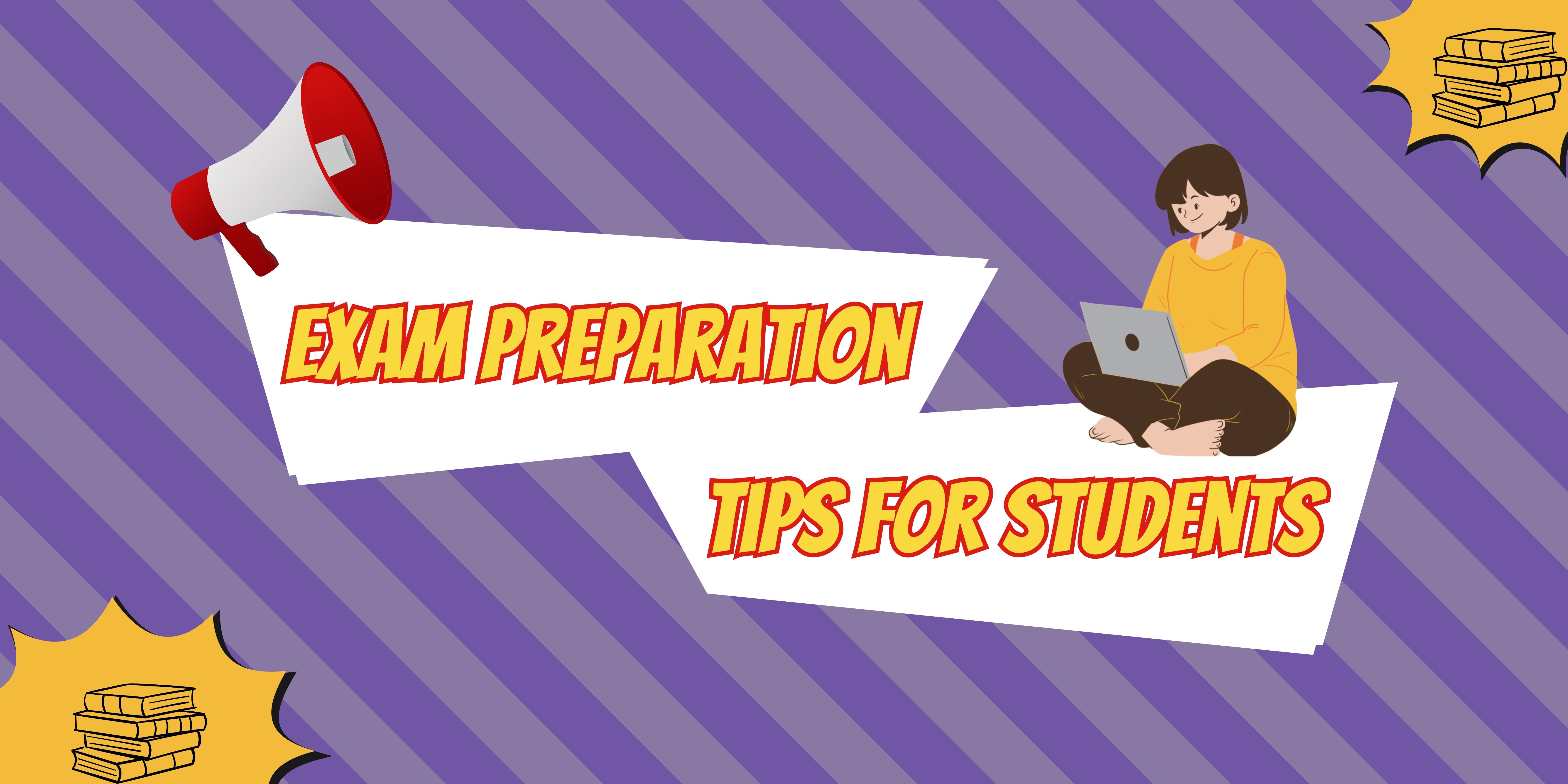Effective Exam Preparation Tips to Write Exams Confidently




Preparing for exams can be a stressful experience, but with the right strategies, students can improve their learning, reduce anxiety, and improve their performance. Whether preparing for a board exam or a competitive test, these practical exam preparation tips for students will help you succeed.
.png)
One of the most effective exam preparation strategies is starting early. Create a realistic study schedule that covers all subjects and allows time for revision. Prioritize difficult topics and allocate extra time to them to avoid last-minute cramming.
Before diving into your studies, carefully analyze the exam syllabus and pattern. Understanding the weightage of different sections will help you focus on high-scoring areas, ensuring a strategic preparation approach.
Long study sessions can lead to burnout. Instead, break your study time into focused intervals; study for 50 minutes, then take a 10-minute break. This will improve your concentration and help you retain information better.
One of the best exam tips is to practice previous years' question papers. This helps familiarize you with the exam format, improves your time management, and develops confidence by helping you identify frequently asked questions.
Time management is key to effective preparation. Set daily and weekly goals, stick to your timetable, and track your progress. During the exam, allocate specific time to each question and avoid spending too much time on one section.
Regular revision is crucial for reinforcing key concepts. Use summary notes, flashcards, or mind maps to revise topics efficiently. Multiple revisions enhance memory recall during the exam.
A well-balanced diet, proper hydration, and sufficient sleep are essential for peak mental performance. Regular physical activity, such as yoga or a brisk walk, can also help reduce stress and improve focus.
Maintain a positive mindset. Avoid comparing yourself with peers, as it can lead to unnecessary stress. Focus on your progress and believe in your abilities. Positive affirmations can boost confidence and reduce exam anxiety.
If you struggle with a particular subject, don’t hesitate to ask for help. Reach out to teachers and classmates, or use online learning platforms like Interval Learning for better understanding. Clarifying doubts early prevents last-minute panic.
Create a dedicated study space free from distractions like social media and television. Use apps that block distractions during study hours and keep your focus intact.
If you're a student getting ready for your board exams, no matter what syllabus you follow, you might wonder how to manage your studies and create an effective study plan. The table below provides guidance.
Instead of rote learning, try to grasp concepts thoroughly. Explaining topics to someone else or using real-life examples can reinforce understanding.
Studying in groups can be effective if done correctly. Quiz each other, discuss doubts, and explain concepts, but avoid unnecessary distractions.
Memory techniques like mnemonics, acronyms, and visual charts can help retain information in a structured and fun way.
Don’t rely on one-time learning; revise key topics multiple times before the exam to ensure better recall.
By following these exam preparation tips for students, you can confidently approach your exams and perform your best. Stay consistent, believe in yourself, and good luck with your exams!
Want to develop your study approach? Interval learning helps you remember and understand better by spacing out study sessions. With personalized one-on-one or group tutoring, you’ll use proven techniques like active recall and spaced repetition. Get a study plan customized to your learning style, making studying more effective. Start today!
To improve focus and avoid distractions, use the Pomodoro technique (study for 50 minutes, break for 10 minutes) and create a dedicated study space.
There’s no fixed rule, but 4-6 hours of focused study with regular breaks is ideal. Quality matters more than quantity.
Revise key concepts, avoid cramming, relax your mind, and get a good night’s sleep to stay fresh for the exam.
Practice deep breathing, meditation, and positive affirmations. Stay organized and confident in your preparation.
Yes, if done correctly! Discussing concepts, quizzing each other, and clarifying doubts can be beneficial. However, avoid distractions and stay focused.